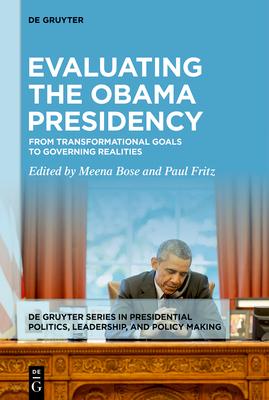Barack Obama ran for president in 2008 with a message of a shared purpose uniting all Americans, and was elected with expectations that he would usher in a new national culture under an approach grounded in public engagement that would transcend partisan divisions. But in a system designed for incremental and contested policy-making governance, enacting these transformational ambitions proved to be far more difficult than anticipated.
This book assesses the legacy of President Obama, with a conceptual focus on the challenge of meeting his goals with the realities of governing. Political science, history, and communication studies experts systematically examine Obama's performance, accomplishments, and shortcomings through the lens of tensions and obstacles with translating transformational campaign promises into policies.
The case studies in this book address campaigning and coalition building, party polarization, presidential communication, executive power, leadership, and domestic and foreign policy. This study serves as an enduring contribution to understanding the Obama presidency, the office of the president, and American politics.
